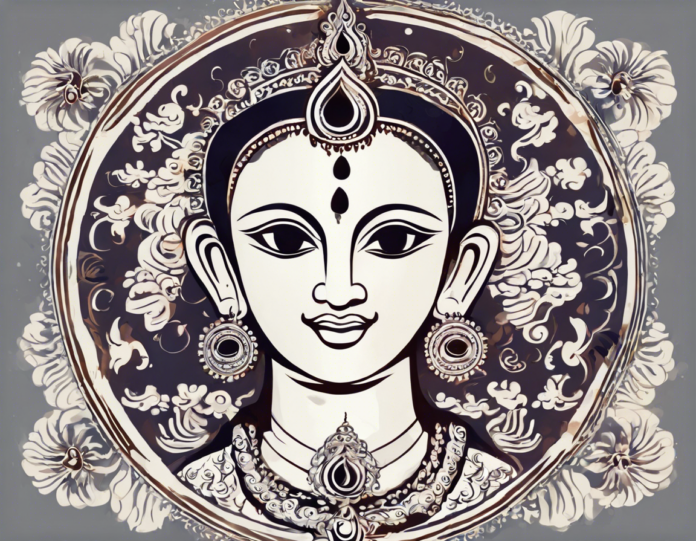Introduction
Dev Uthani Ekadashi, also known as Prabodhini Ekadashi, is a significant Hindu festival celebrated on the eleventh day of the bright lunar fortnight in the Hindu month of Kartik. This day marks the awakening of the gods from their four-month-long slumber which begins with Ashadha Ekadashi. Devotees fervently observe various rituals and practices on this day to seek the blessings of Lord Vishnu and Goddess Lakshmi.
Historical Significance
According to Hindu mythology, during the month of Ashadha, the Devas (gods) are said to be in deep meditation. They are believed to awaken on Dev Uthani Ekadashi, and with their awakening, the auspicious period of Chaturmas (four months) concludes. It is said that Lord Vishnu, as the preserver of the universe, goes to sleep on Shayani Ekadashi (Ashadha Ekadashi) and wakes up on Dev Uthani Ekadashi to protect and nourish the world.
Rituals and Observances
Devotees observe various rituals and fasting on Dev Uthani Ekadashi to receive blessings and lead a virtuous life. The day begins with a holy bath before sunrise, followed by prayers and offerings to Lord Vishnu. Some devotees choose to observe a strict fast without consuming food or water, while others opt for a partial fast by consuming fruits and milk.
Key rituals observed on Dev Uthani Ekadashi include:
Tulsi Vivah: This day also marks the ceremonial marriage of the Tulsi plant (holy basil) to Lord Vishnu, symbolizing the union of the individual soul (jivatma) with the Supreme Soul (paramatma).
Recitation of Vishnu Sahasranama: Devotees chant the 1000 names of Lord Vishnu to seek his blessings and protection.
Charity and Donation: Giving alms to the poor and feeding the needy is considered auspicious on this day.
Breaking the Fast: The fast is broken on the next day (Dwadashi) after performing the necessary rituals and prayers.
Significance of Observing Dev Uthani Ekadashi
Observing Dev Uthani Ekadashi is believed to bestow blessings and benefits on devotees, including:
Purification of Body and Mind: Fasting and observing rituals on this day help in cleansing the body and mind of impurities.
Removal of Sins: It is believed that observing Ekadashi vrata helps in atoning for past sins and wrongdoings.
Seeking the Blessings of Lord Vishnu: By observing Dev Uthani Ekadashi, devotees seek the blessings of Lord Vishnu for prosperity, peace, and happiness.
Enhancement of Spiritual Growth: The observance of Ekadashi is said to heighten spiritual awareness and inner growth.
FAQs
Q1: What is the significance of Dev Uthani Ekadashi?
A1: Dev Uthani Ekadashi marks the awakening of the gods after a four-month slumber and is considered auspicious for seeking blessings and leading a virtuous life.
Q2: How is Dev Uthani Ekadashi celebrated?
A2: Devotees observe rituals like Tulsi Vivah, fasting, prayers, and charity on Dev Uthani Ekadashi to honor Lord Vishnu and Goddess Lakshmi.
Q3: What are the benefits of observing Dev Uthani Ekadashi?
A3: Observing Dev Uthani Ekadashi is believed to purify the body and mind, remove sins, seek the blessings of Lord Vishnu, and enhance spiritual growth.
Q4: Can anyone observe the fast on Dev Uthani Ekadashi?
A4: While fasting on Dev Uthani Ekadashi is voluntary, individuals with health concerns or specific conditions should consult a healthcare provider before undertaking a fast.
Q5: What is the significance of Tulsi Vivah on Dev Uthani Ekadashi?
A5: Tulsi Vivah symbolizes the ceremonial marriage of the Tulsi plant to Lord Vishnu and signifies the union of the individual soul with the Supreme Soul.
Conclusion
Dev Uthani Ekadashi holds immense significance in Hindu culture and spirituality. Observing this auspicious day with dedication and sincerity is believed to bring blessings, prosperity, and spiritual growth. By partaking in the rituals and observances associated with Dev Uthani Ekadashi, devotees seek to deepen their connection with the divine and lead a righteous and fulfilled life.


